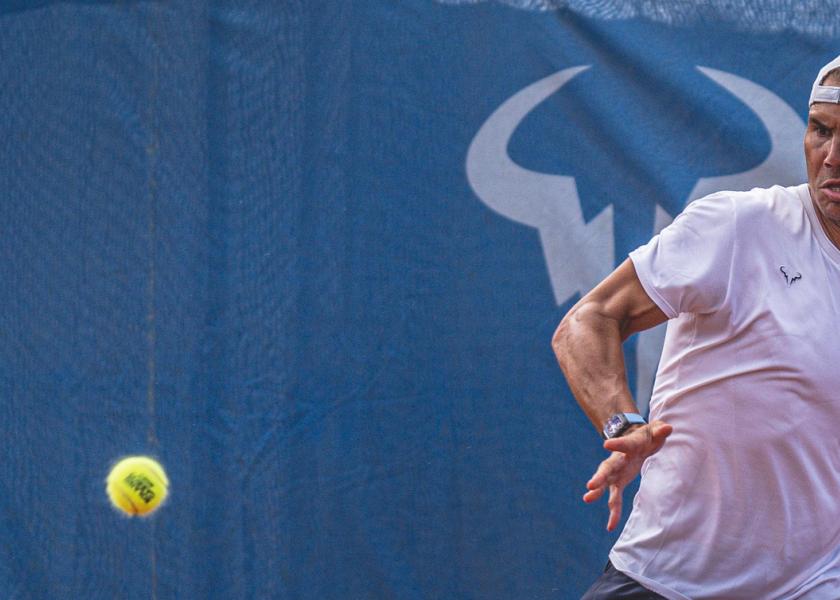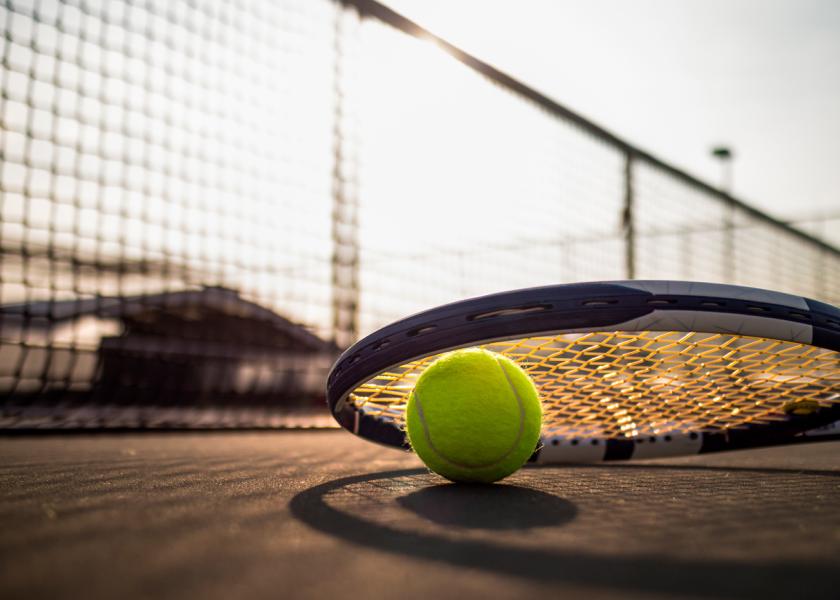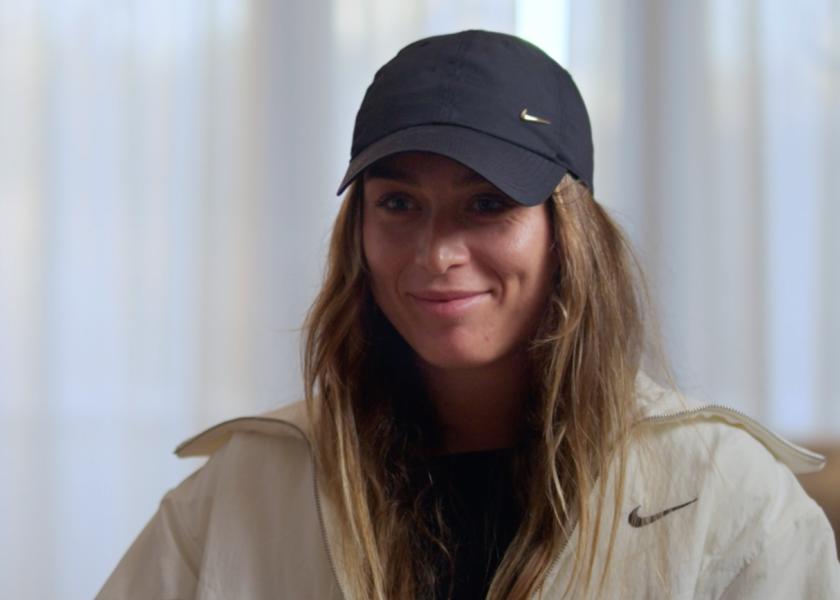Anabel Medina
The Spanish female captain
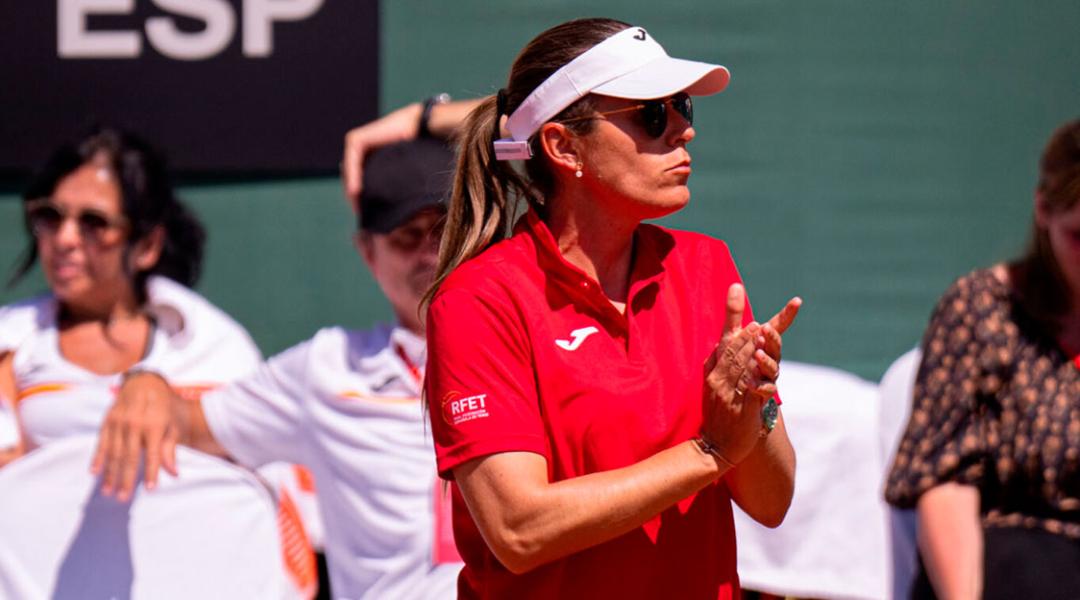
The Spanish female tennis team, captained by Anabel Medina and made up by Paula Badosa, Sara Sorribes, Rebeka Masárová, Cristina Bucșa and Marina Bassols, dreams of winning the Billie Jean King Cup in Seville. Thanks to the players and public support, the Spanish manager hopes to break the team’s bad streak: Spain hasn’t managed to win since 1998, with Arantxa Sánchez Vicario and Conchita Martínez.
In the 1990s, Spanish female tennis dominated the Federation Cup (now known as the Billie Jean King Cup in honour of the historical tennis player), winning five titles in 10 years. Arantxa Sánchez Vicario and Conchita Martínez were the reason for that success. Now, 25 years after the latest Spanish victory, the national team —sponsored by Iberia— dreams of winning the trophy again. Paula Badosa, a question mark until the last minute due to a back injury, Sara Sorribes, Rebeka Masárová, Cristina Bucșa and Marina Bassols are the ones chosen by captain Anabel Medina (Torrent, 1982), who seems optimistic. This former tennis player considers that the Andalusian audience who’ll fill the La Cartuja stadium in Seville (where the final phase will be held between the 7th and 12th of November), can make all the difference. Another reason to believe in the possibility of success is Badosa’s participation: “Everyone knows Paula’s level, so having her on the team is excellent news for everyone,” declares Anabel a few days before the competition is set to start.
How is the Spanish team feeling about the Billie Jean King Cup? Which are your expectations?
The team is thrilled and full of hopeful anticipation. We’re particularly excited about the final phase being played in Seville, Spain. We have the same expectations as always: to go out and win. But step by step. The first goal is to pass the group phase against Poland and Canada to get to the semifinals and then, why not, dream of winning the trophy.
Spain is playing at home, although not on its favourite surface: clay. Despite this, can playing in Seville make all the difference?
Without a doubt. In a competition like this one, the homecourt advantage is essential. With the current format, only one country has that privilege, and we have to make the most of it. Since it’s a team competition, the audience gets more involved. Also, Andalusian fans are great cheerleaders and always treat us well. Hardcourt isn’t our favourite surface, but we must comply with the rules, and we have five days of training to adapt.
“The most important thing is to pull together so that, when whoever’s playing goes through a tough time, she doesn’t feel alone on the court”
In terms of ranking, Spain doesn’t have the best female players in the world. Nevertheless, since you were appointed captain, they’ve won 11 of 14 qualifying rounds. Where does the strength of this national team lie?
Our strength lies in teamwork, which has led us to fight for each point in each qualifying round. During the time I’ve been captain, 13 players have been through the team, and they’ve all brought really important things to the table. In a competition like this one, ranking falls by the wayside due to the demands and pressure of representing your country; commitment and hard work matter more.
During the week of the tournament, which of your jobs at the head of the team is most important?
The most important thing is to work so that the players are in the best condition and, at the same time, pull together so that they all support one another; so that, when the competition starts and whoever’s playing goes through a tough time, she doesn’t feel alone on the court.
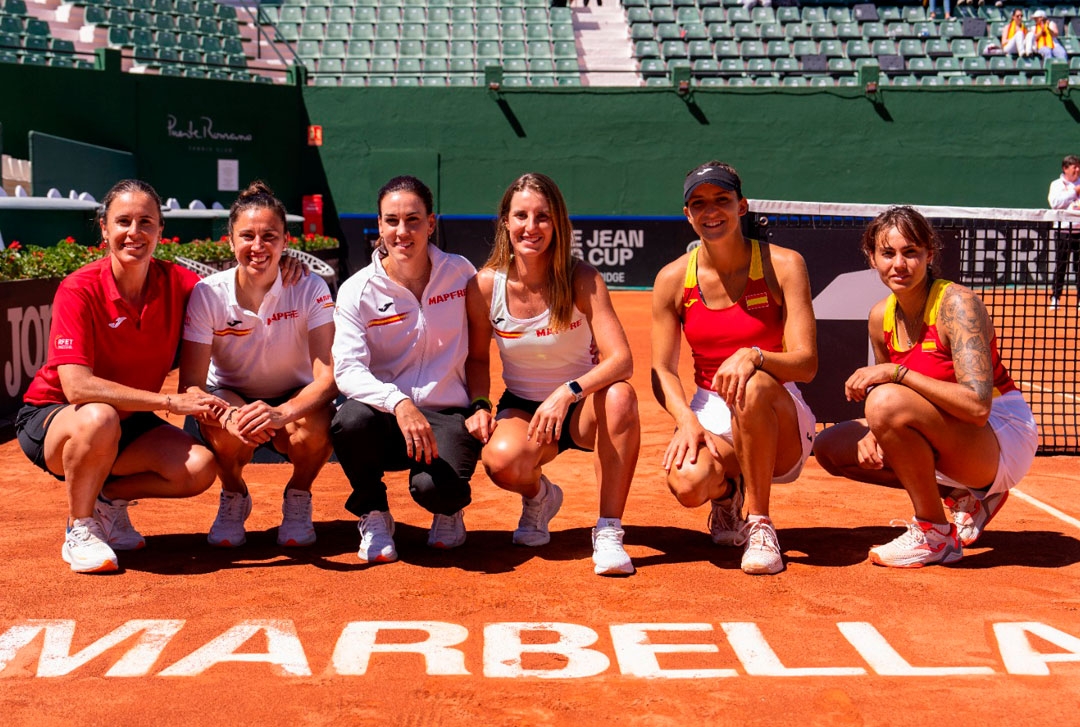
Anabel Medina alongside (left to right) Sara Sorribes, Nuria Párrizas, Marina Bassols, Rebeka Masárová and Aliona Bolsova, the players who managed to qualify for the final round of the Billie Jean King Cup. © RFET
In the 1990s, Spain won five titles with Arantxa and Conchita. Will we experience another golden era of Spanish female tennis?
I think Spanish female tennis has lived through great moments after Arantxa and Conchita. Don’t forget about how Garbiñe Muguruza, Paula Badosa and Carla Suárez have achieved incredible success individually. It’s true that as a team we haven’t won the BJK Cup for many years and, as captain, it’s something I keep in mind; the goal is to win again. Spain has historically been a powerhouse in this competition, and it would be lovely to be able to lift the trophy again.
“There are several ways of measuring talent in tennis. People think that it’s just having a special ‘connection’ with the ball, but it’s a combination of many factors”
As an expert in this world, how much talent is there in Spanish female tennis? Are we doing things properly?
There’s so much talent in Spanish female tennis. For many years, we’ve had several players among the top 100 best in the world, despite lack of funding. Many of them had to pay for their own careers and, despite this, since Arantxa’s and Conchita’s time, we’ve had 20-30 players on that list. Those are spectacular numbers! Female tennis is working hard in Spain.
You were recently appointed female tennis manager at the Rafa Nadal Academy. When training a rising star, which plays a bigger role: talent or hard work?
I’m of the opinion that talent must come with hard work. In fact, a hard-working player is already incredibly talented. Without certain skills, a player can’t reach the top of the world ranking, but, even if she has them, without hard work and commitment, she won’t get there either. In the end, it’s a combination of both things: talent and hard work.
“Talent ends up ‘buried’ if sportswomen don’t receive proper financial support to grow”
And in a sport like tennis, where does talent reside?
Talent is a player who hits the ball incredibly well, talent is a player with a privileged physical condition, talent is a player with great mental strength, talent is a player with a great work ethic... In the end, there are several ways of measuring talent in tennis. People think that it’s just having a special connection with the ball, but it’s a combination of many factors.
Garbiñe Muguruza told Women’s Health a few days ago that she’s “really happy about having a break, it was something my body and mind needed.” As a former player, do you understand Garbiñe’s decision? Is tennis one of the most mentally challenging sports?
I understand Garbiñe completely and I respect her decision. Tennis is a really tough sport mentally. You travel for weeks around the world and are also alone on the court; psychologically and emotionally you have to deal with everything alone and it’s not easy. I just hope that she decides to come back at some point because it’s a shame for a player of her calibre to be out of the circuit.
Tennis has been pioneering in terms of equality between men and women. What do you think of more sports joining this movement?
It’s essential for other sports to follow in the footsteps of female tennis, which has always been a trailblazer in this sense. Everything is becoming increasingly more demanding and if women have more resources, female sport will grow. Women are often expected to perform at a level that does not match the resources they have. Talent ends up buried if sportswomen don’t receive proper financial support to grow.
